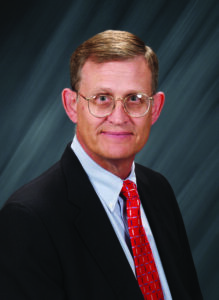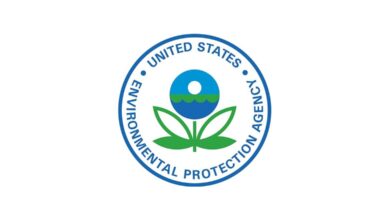News Cuttings
Young Professionals survey: 70% of respondents have considered leaving oil/gas industry since March 2020
A whopping 70% of respondents to a recent survey conducted by the IADC Young Professionals (YP) Committee said they have either somewhat or strongly considered leaving the oil and gas industry since March 2020. Approximately 60% of the 200-plus responses came from young professionals ages 40 or under.

The results of the survey were presented during a panel session at the 2021 IADC Sustainability Conference on 10 February by YP Committee members Amanda Colyer, Technical Sales Manager at Helmerich & Payne, and Travis Weaver, Marketing Manager at Cactus Drilling Company.
To pinpoint the reasons for why such a high percentage of people would consider leaving the industry, the survey asked about changes that people have experienced in their jobs since early 2020.
“A resounding 61% of people polled have seen increased responsibilities, which isn’t overly surprising given the consolidation and reductions we saw last year,” Ms Colyer said. “However, my concern is in these other areas of change: Only 11% saw promotions, 12% moved laterally, and 6% were demoted. So, at the very least, 50% of the survey participants saw an increase in responsibilities without some kind of recognition.”
When it comes to working from home – which has obviously become much more commonplace over the past year – the survey found that 70% of respondents were satisfied with new guidance and training tools provided by their employers to help employees adapt to the new work environment.
“We can see companies did well setting us up to work from home and gave us the tools needed to be successful,” Mr Weaver said. “But where we got feedback was that we kind of dropped the ball in continuing personal development and training programs.”
Nearly three-fourths of respondents said their company’s professional development and training practices have changed since March 2020, and 40% said they were dissatisfied with the changes.
While employees recognize the need for companies to cut costs as they move into “survival mode” in this downturn, Mr Weaver urged companies to remember that people remain their greatest assets. “At the end of the day, we need people for our future and to propel our industry forward.”
There are some steps that organizations can take to help retain their employees without big expenses, however. Speaking on the same panel session, Sean Sullivan, Manager of Talent Management at Valaris, encouraged organizations to continue delivering professional development training, even if it’s virtual. “We can’t do everything virtual, but doing something virtually is essential,” he said.
Mr Sullivan also encouraged companies to find ways to give young professionals opportunities to develop their leadership skills – something that occurs outside of their normal day-to-day work. For example, “we’ve had some success having more junior operations people fill in for rig managers when they’re on annual leave, rather than giving that rig to another rig manager.”
IADC Accreditation & Credentialing passes ISO 9001:2015 audit for 15th year
For the 15th year in a row, IADC’s accreditation & credentialing division (ACD) passed the ISO 9001:2015 recertification audit. It is the sixth consecutive year with zero findings.
“IADC is once again very proud of this achievement by the ACD team,” said Brooke Polk, IADC Senior Director – Accreditation Operations. “Certified organizations are required to go through a two-day audit every year to ensure they comply with the 83 ISO requirements. All procedures, processes and records are verified, including how IADC manages its accreditation programs with consistency and quality.”
The ISO 9001 standard is the world’s most widely recognized quality management system (QMS) certification. With more than 1 million companies certified in over 170 countries, ISO 9001 defines requirements for companies that want to ensure that their products and services consistently meet customer requirements and continually improve their business processes.
Last year, IADC repurposed its KREW continuous-learning platform to ensure the industry could continue its well control certifications through WellSharp Live. This distance-learning resource has proven valuable to the association’s network of accredited well control trainers. As of early 2021, more than 7,500 trainees have been trained with the new WellSharp Live course.
To strengthen the program, IADC recently enhanced proctor features for WellSharp Live. Further, all restrictions on eligibility to use WellSharp Live have been removed. This will broaden the scope of available trainees and allow WellSharp Live to become a permanent delivery option.
Another recently launched tool is the Knowledge Retention & Education for our Workforce (KREW) platform for well control concepts. It addresses knowledge decay with short time commitments and bite-sized chunks of structured learning. Additionally, IADC is developing an alternate training path for KREW users, leading to a possible shortened recertification course.
Click here to learn more about IADC’s accreditation programs.
IADC ART begins update of dull bit grading system
While the IADC drill bit dull grading system has held up well in the decades since it was launched, the association recently recognized that an overhaul was needed as the industry adopts increasing levels of digitalization on today’s rigs.
The IADC codes were created as a compact, text-based way to describe the bit condition, but there are limitations. For example, the codes require human expertise and are subject to interpretation, and no independent verification is possible without the original tools and/or photos. The code set also does not capture information for detailed root cause analysis of bit wear.
Earlier this year, the IADC Advanced Rig Technology (ART) Committee kicked off a project to revamp this system. The aim is to support continuous improvement and root causes analysis efforts; reduce the subjectivity inherent in the current system; support both human and emerging automated bit dull grading systems; and create a best practice for a digital storage format, including searchable metadata. The digital storage format should be usable for human training and machine learning tools and support real-time selection for the next bit/BHA. It should also support detailed forensics required for tool and system redesign efforts.
IADC opens membership to industry professionals
IADC has created a new Professional Membership category, providing individuals an opportunity to participate with the association outside of the typical corporate membership structure. The Professional Membership is available to individuals with industry experience who are sole proprietors or recent graduates who were members of an IADC student chapter at their college or university.
Click here for details about the new membership.

Long-time IADC staffer Ken Fischer passes away
Long-time IADC veteran Kenneth L. Fischer, who served the association for 22 years, has passed away after a hard-fought battle with cancer.
Mr Fischer, who most recently served as Vice President of International Development for the association, viewed his career as one of service. Endlessly curious, he became a student of the many different cultures he encountered. He wanted to understand the way other people and other cultures viewed things, which is one reason he left such an impact across the 54 countries he visited while representing the mission and vision of the global drilling industry and its association.
“I believe Ken’s ability to connect with people, both on a professional and personal level, is what people will remember him most for,” said Jason McFarland, IADC President and a long-time friend of Mr Fischer’s. “He always had an open ear and an open mind to listen to, and receive, what others had to say. I think that’s one of the attributes that made engaging with Ken so rewarding and made forging a friendship with him so effortless.”
IADC publishes new book on well integrity for workovers
IADC, through its Technical Publications Committee, has just added another volume to the IADC Drilling Series. “Well Integrity for Workovers and Recompletions, 1st Edition” was authored by Les Skinner, who has worked for Chevron, PetroSkills, Shell, Cudd Pressure and Neal Adams Firefighters.
The book delivers the steps and processes necessary to minimize failure in production wells. After understanding the background on well integrity and establishing the best baseline, the reference advances into various failure modes that can be expected. It rounds out with an explanation and tools concerning economic considerations, such as how to increase reserve potential and rate of return.
Click here to access the book in the IADC Bookstore.
IADC A&M Student Chapter to hold HSE Summit on 16 April
The IADC Texas A&M Student Chapter is planning to hold an online event, “Oil and Gas HSE Summit: From the Perspective of Academia, Regulatory and Industry Representatives,” on 16 April. The goal is to educate the public about the oil and gas industry’s HSE operations.
Texas Railroad Commissioner Christi Craddick will provide the keynote address. Other scheduled speakers include:
• Dr Daniel Hill, Regents Professor, Harold Vance Department of Petroleum Engineering, Texas A&M University;
• Micah Backlund, HSE Manager for Helmerich & Payne US Land Operations;
• Emily Hague, Senior Policy Advisor, API; and
• Larry Nixon, Great White Well Control; and
• Dr Rashid Hasan, Co-Principal Investigator, Ocean Energy Safety Institute (moderator).
Topics to be covered at the event include:
• COVID-19 impact;
• Flaring/fugitive emissions reduction;
• Hydraulic fracturing;
• Well control incidents;
• Carbon capture utilization and storage; and
• Outlook on the oil and gas industry.
Click here to register for the HSE summit.




